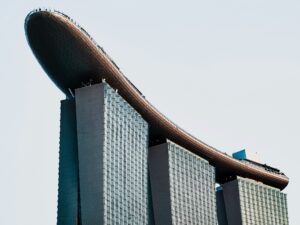
Amidst shifting economic conditions and evolving market dynamics, South Korea’s hotel investment sector witnessed notable fluctuations in 2023, reflecting a mix of challenges and opportunities. Insights from a recent study conducted by Colliers shed light on the nuanced trends shaping the country’s hospitality real estate market.
Rising Interest Rates and Development Costs Impact Investment
After experiencing a period of significant growth, annual total investment in South Korean hotels exhibited a decline, reaching KRW 5.5 trillion in 2022, down from KRW 5.8 trillion in 2021. Notably, the market had surpassed previous average levels, which stood at KRW 2 trillion per year. However, the decline in 2023 can be attributed to several factors, including rising interest rates and escalating development costs, which constrained hotel investment activities among existing investors.
Shift in Investment Preferences and Market Dynamics
The surge in hotel investment witnessed in previous years was primarily driven by developers seeking to capitalize on prime locations and floor area ratios for redevelopment profits. Notably, hotel sites in Gangnam district emerged as sought-after targets, with developers eyeing opportunities to transform them into high-end officetels.
However, challenges such as rising interest rates and development costs led to a shift in investment preferences. Conservative investors redirected their focus towards stable office markets, showcasing a preference for stable trends over hotel conversion investments. Consequently, the proportion of hotel investments within the total Korean commercial real estate investment declined from 10% in 2022 to 6% in 2023.
Key Transactions and Redevelopment Initiatives
Despite the overall decline in hotel investment, notable transactions underscored ongoing market activity. The acquisition of the Millennium Seoul Hilton hotel, valued at KRW 1.1 trillion, by the IGIS Asset Management and Hyundai Construction Consortium, marked a significant deal aimed at redevelopment into a mixed-use office and hotel complex. Similarly, the purchase of the Grand Hyatt Seoul Hotel by Blue Cove Asset Management highlighted continued interest in prime-grade hotel assets.
Shift Towards Office Conversion and Repurposing
In response to changing market dynamics, there has been a notable trend towards converting hotels into office spaces, driven by limited supply, robust demand, and stable market conditions. Notable examples include the planned conversion of Tmark Hotel Myeongdong into a 15-story office building and the renovation of New Kukje Hotel near Gwanghwamun Station into an office complex by Q4 2024.
Furthermore, real estate developer Tmark is exploring the acquisition of the Glad Live Hotel in Nonhyeon-dong for transformation into office space, reflecting a broader trend towards adaptive reuse and repurposing of hospitality assets.
Navigating Challenges and Anticipating Recovery
While the hotel industry continues to grapple with the lingering effects of the COVID-19 pandemic, including reduced tourist numbers, there are cautious signs of recovery. Although foreign tourist arrivals, particularly from key markets such as China, remain below pre-pandemic levels, gradual improvements are anticipated in the coming years.
However, rising interest rates and delayed investment decisions are expected to impact the hotel sector adversely in the near term. Yet, as tourist numbers recover and hotel operators’ profitability improves, there is optimism for a rebound in investor sentiment. Long-term investors are closely monitoring market developments, poised to capitalize on emerging opportunities as the hospitality sector navigates the path towards recovery.



